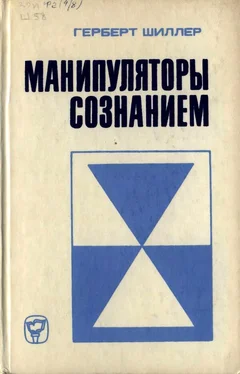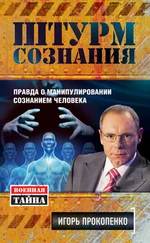15 Ibid.
16 Tilford Gaines. Economic Report. New York, 1975.
17 Hamid Moulana. Trends in Research on International Communication in the United States. — "Gazette (Amsterdam)", 1973, vol. 19 (2), pp. 79—90.
18 Glen H. Fischer. Public Diplomacy and Behaviorial Sciences. Bloomington, 1972, p. 7.
19 Ibid.
20 Ibid, p. 8.
21 Ibid, p. 44.
22 Ibid, p. 20.
23 Wilson P. Dizard. Which Way to the Future — "USIA Communicator" 1973, vol. 1 (4), July, pp. 11-13.
24 "Control of the Direct Broadcast Satellite: Values in Conflict". Palo Alto, Program on Communication and Society, 1974.
25 "International Information, Education and Cultural Relations: Recommendations for the Future". Washingtin, D. C. George- town University, Center for Strategic and International Studies, 1975, p. 12.
Глава вторая
1 John S. Knight. World Freedom of Information, Speech presented in Philadelphia, April 16, 1946. Published in "Vital Speeches", 1946, vol. 12, pp. 472-477.
2 Palmer Hoyt. Last Chance, Speech delivered bevore the Jack- son County Chamber of Commerce, Medford, Oregon, Sept. 18,1945. — -Vital Speeches", 1946, vol. 12, pp. 60—62.
3 James Lawrence Flay. A Free Flow of News Must Link the Nations. — "Free World", 1944, vol. 8 (2), p. 168.
4 "Business Week", August 4, 1945, pp. 32, 34, 41.
5 Quoted in "Charted for a Free Press". — "Newsweek", December 11, 1944, p. 88.
6 "Department of State Bulletin", 1946, vol. 14, (344), February 3, p. 160.
7 Quoted by John S. Knight, op. cit., p. 476.
8 Report of the United States Delegates to the United Nations Conference on Freedom of Information. U. S. Departament of State Publication 3150, International Organization and Conference Series 111. 5. Washington, 1948.
9 John S. Knight, op. cit., pp. 472—473.
10 Kirk H. Porter and Donald Bruce Johnson. National party platforms, 1840-1964. Urbana, 1966, pp. 404, 413.
11 Congressional records, 90-th Congress, 8044 : 58, Stat. (pt. 2), 1119.
12 "The New York Times", November 29, 1944.
13 "Editor and publisher", December 2, 1944, p. 7.
14 "The New York Times", November 29, 1944.
15 "Editor and publisher", April 21. 1945, p. 15.
16 Report of the United States delegation to the Inter-American Conference on problems of war and peace (Mexico City, Mexico, February 21 — March 8, 1945). U. S. Departament of State Publication 2497, Conference Series 85. Washington, 1946, p. 21.
17 Proposed educational and cultural organization of the United Nations. U. S. Departament of State Publication 2382. Washing- ton, 1945, pp. 5—7.
18 Luther H. Evans. The United States and UNESCO; A Summary of the United States delegation meetings to the Constitutional con- ference of the United Nations Educational, Scientific and Cultural Organization, in Washington and London, October — November 1945. New York, 1971, p. 11.
19 Report of the United States Comission for the United Nations Educational, Scientific and Cultural Organization to the Secretary of State, 1947.
20 Llewellyn White and Robert D. Leigh, Peoples speaking to peoples. A Report on International Mass Communications from the Commision on freedom of the press. Chicago, 1946.
21 First session of the General Conference of the United Nations Educational Scientific and Cultural Organization, Paris, November 19 — December 10, 1946. Report of the United States delegation, with selected documents. Washington, 1947, p. 17.
22 Resolution 2/9 of June 21, 1946, Economic and Social Council Official Records (I-st year, 2-nd Session). New York, № 8, p. 400.
23 Yearbook on Human rights for 1947. New York, 1949, p. 439.
24 Ibid.
25 William Benton (Chairman, United States delegation to the freedom of information Conference), Address delivered before the Anglo-American press Club, Paris, April 7, 1948, pp. 518—520.
26 "Accomplishments of the United Nations Conference on Freedom of State*; 1948, I (3), June.
27 United Nations documents, E/Conf. 6/79 and E/1050, August 28, 1948.
28 John B. Whitton. The United Nations Conference on Freedom of Information and the movement against international propaganda.— "American journal of international law", 1949, 43 (January), p. 76.
29 "Economist", May 1, 1948, p. 701.
30 Thomas Guback. The international film industry. Bloomington, 1969.
31 Kaarle Nordenstreng and Tapio Varis. Television traffic — a one-way street? — "Report and Paper on Mass Communication'9, № 70, Paris, UNESCO, 1974.
32 Herbert I. Schiller. The Mind Managers. Boston, 1973.
33 Robert D. Leigh. Freedom of communication across national boundaries. — "Educational Record", 1948, 29 (October), p. 382.
34 Ibid.
35 Report of the working group on direct broadcast satellites on the Work of Its fourth session. A/AC, 105/117. New York, June 22, 1973, Annex I, p. 1.
36 UNESCO declaration of guiding principles on the use of satellite broadcasting for the free flow of information, Spread of eduction and Greater cultural exchange. Document A/AC, 105/109, 1972 (mimeographed).
37 Frank Stanton. Will they stop our satellites? — "The New York Times", October 22, 1972.
38 Ibid.
39 Earl L. Vance. Freedom of the press for whom? —- "Virginia Quarterly Review", 1945, 21 (Summer), pp. 340—354.
40 John Scali, U. S. delegate to tne United Nations. Speech before the General Assembly. — "The New York Times", December 7. 1974.
41 "The New York Times", November 23, 1974.
42 "The New York Times", December 12, 1974.
43 Final recomendations of the Helsinki consultations. Helsinki, 1973, p. 15.
44 Conference on security and cooperation in Europe, Verbatum Records, Part I, CSCE/I/PV. 5, Helsinki, July 5, 1973, Sir Alec Douglas Home.
45 Urho Kekkonen. "The free flow of information: towards a re- consideration of national and international flow of television program- mes. University of Tampere, May 21, 1973.
Глава третья
1 Kaarle Nordenstreng and Herbert l. Schiller. Helsinki: the new equation. — "Journal of Communication", 1976, 26 (1), pp. 130— 134.
2 Analysis of problems and table of objectives to be used as a basis for medium — term planning (1977—1982). Document 18 c/4. Paris, UNESCO, 1974, p. 28.
3 Leonard H. Marks. International conflict and the free flow of information. — "Control of the direct broadcast satellite: values in conflict". Palo Alto, 1974, p. 66.
4 Ibid., p. 68.
5 Frederick W. Frey. Communications and development. — Ithiel de Sola Pool et al (Eds.) Handbook of communications. Chi- cago, 1973, p. 400.
6 "Statistics on radio and television, 1950—1960n and "Statistical Yearbook, 1962". Paris, UNESCO.
7 Iskandar Alisjahbana. 'Technology and development", paper presented at International Broadcast Institute general meeting. Mexico City, September 1—5, 1974.
8 Nicholas Garnham. "Trojan horses: some socio-political implications of communication technology", paper presented at International Broadcast Institute general meeting. Mexico City, Sept. 1—5,1974.
9 Raymond Williams. Television: technology and cultural form. London, 1974, pp. 13, 19.
10 Dallas Smythe. After bicycles what? 1973 (mimeograhed).
11 N. Garnham, op. cit.
12 Barry Commoner. The closing circle. New York, 1972, pp. 266— 267.
13 Stanton A. Glantz and Norm V. Albers. Department of defence reserch and development in the university. — Science", 1974, 186 (4165), p. 706.
14 Ibid., p. 710.
15 Herbert I. Schiller. Mass communication and American empire. New York, 1969.
16 Joseph N. Pelton. INTELSAT: politics and functionalism. Mt. 1974, p. 158.
17 N. Garnham, op. cit.
18 David Dickson. Alternative technology. Glasgow, 1974.
Читать дальше






